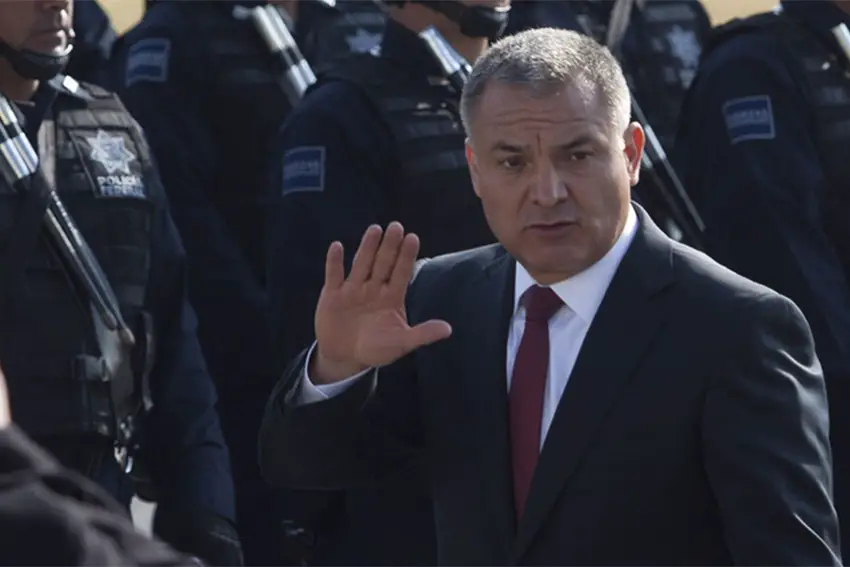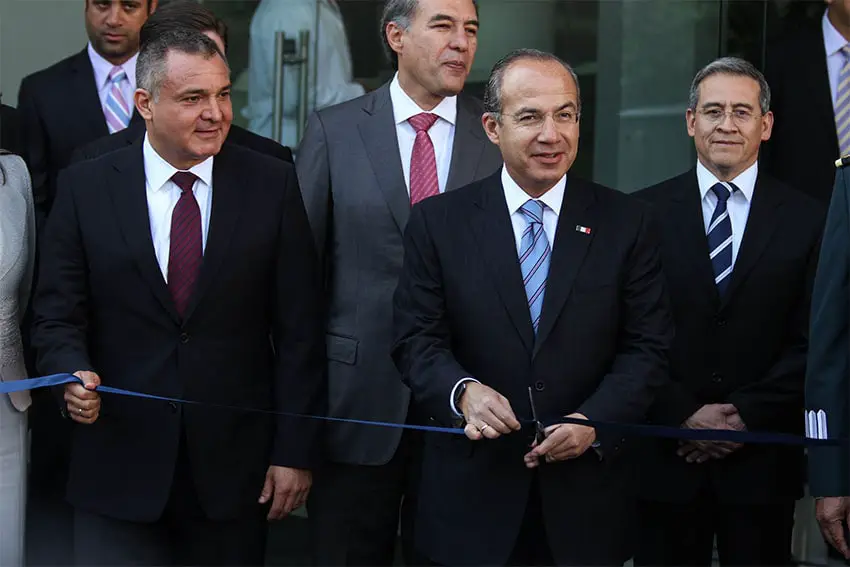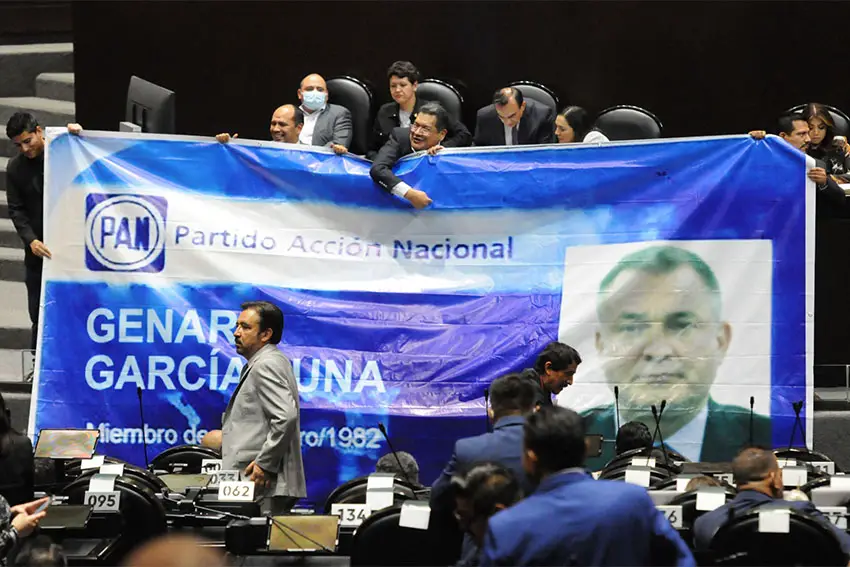Ex-security minister García Luna gets 38 years in US prison

Mexico’s former security minister Genaro García Luna was sentenced to just over 38 years in prison on Wednesday, almost 20 months after he was convicted of colluding with the Sinaloa Cartel.
At a hearing in U.S. federal court in Brooklyn, New York, District Judge Brian M. Cogan sentenced García Luna to 460 months’ imprisonment and a US $2 million fine “for his decade-long assistance to the Sinaloa Cartel in exchange for millions of dollars in bribes,” according to a press release from the United States Attorney’s Office.

“Following a four-week trial in February 2023, Garcia Luna was convicted by a jury of engaging in a continuing criminal enterprise, international cocaine distribution conspiracy, conspiracy to distribute and possess with intent to distribute cocaine, conspiracy to import cocaine and making false statements,” the statement said.
García Luna served as security minister in the 2006–2012 government led by former president Felipe Calderón. Before taking up that position he was director of the now-defunct Federal Investigation Agency.
He was arrested in Texas in late 2019.
Calderón has denied having any knowledge of García Luna’s illicit dealings.
United States Attorney Breon Peace said that the sentencing of the 56-year-old — the highest-ranking Mexican official to have ever faced justice in the U.S. — “is a critical step in upholding justice and the rule of law.”
“His betrayal of the public trust and the people he was sworn to protect resulted in more than one million kilograms of lethal narcotics imported into our communities and unleashed untold violence here and in Mexico,” he said.
Así se vio afuera del Tribunal Federal Este de Brooklyn, donde determinaron la sentencia de García Luna. pic.twitter.com/J7HszXsKlx
— Estefanía Veloz (@EstefaniaVeloz) October 16, 2024
Garcia Luna’s case attracted protests and the curious outside the Brooklyn federal courthouse where his trial occurred.
“This sentence sends a strong message that no one, regardless of their position or influence, is above the law.”
Drug Enforcement Administration (DEA) chief Anne Milgram said that the sentencing “sends a clear message to corrupt leaders around the world who use their positions of power to help the cartels.”
The message? “No amount of power will shield you from justice.”
“… Instead of protecting the citizens of Mexico, Garcia Luna was protecting drug cartels. The DEA will continue to relentlessly pursue drug trafficking organizations and those who protect them,” Milgram added.
While serving as security minister, the now convicted and sentenced criminal was a “close partner” of the DEA, “which gave him multiple awards over the years to honor his work fighting crime,” The Los Angeles Times reported.
“At the same time he was receiving DEA accolades, however, he was also leaking secrets to the Sinaloa cartel,” the Times added.
The U.S. Attorney’s Office statement said that “Garcia Luna’s conduct included facilitating safe passage of the [Sinaloa] Cartel’s drug shipments, providing sensitive law enforcement information about investigations into the Cartel and helping the Cartel attack rival drug cartels, thereby facilitating the importation of multi‑ton quantities of cocaine and other drugs into the United States.”
“In exchange for bribes, the defendant’s Federal Police Force acted as bodyguards and escorts for the Cartel, allowing Cartel members to wear police uniforms and badges and helping to unload shipments of cocaine from planes at Mexico City’s airport, then delivering the cocaine to the Cartel. The defendant was paid in U.S. currency, stuffed variously in suitcases, briefcases and duffel bags,” it said.
The statement also said that after he moved to the United States in 2012, García Luna applied for U.S. citizenship in 2018, and on his application “lied about his past criminal conduct on behalf of the Cartel in an attempt to become a U.S. citizen.”
García Luna’s wife and daughter were in the court when Cogan read out the 460-month sentence.


Prosecutors sought a sentence of life imprisonment, but the judge said that the ex-security minister should have “some light at the end of the tunnel.”
He acknowledged García Luna’s work teaching fellow prisoners at the Metropolitan Detention Center but also said that the former federal official lived a “double life,” and the harm he caused outweighed his good deeds.
“Aside from your very pleasant demeanor and your articulateness, you have the same kind of thuggishness as El Chapo, it just manifests itself differently,” Cogan said, referring to convicted drug lord Joaquín Guzmán Loera.
Before his sentence was handed down, García Luna accused the Mexican government and criminals of making false allegations against him.
“I have not committed any of these crimes,” he said. “I am not the person that the criminals point to.”
Former president Andrés Manuel López Obrador claimed that the arrest and conviction of García Luna was evidence that Mexico was a narco-state when Calderón was in office.
AMLO has faced similar claims himself.
Three media organizations reported in January that López Obrador’s 2006 presidential campaign received millions of dollars in drug money, an accusation he denied. The New York Times subsequently published allegations that people close to the former president, including his sons, received drug money after he took office in late 2018.
López Obrador’s predecessor, Enrique Peña Nieto, denied an allegation made at El Chapo’s 2019 trial that he received a $100 million bribe from the Sinaloa Cartel.
The Los Angeles Times reported that “the recent arrest of Ismael ‘El Mayo’ Zambada, a longtime partner of El Chapo known for high-level political connections, has fueled speculation in Mexico that U.S. authorities could be building cases against other top officials or politicians.”
With reports from Reforma and Reuters
Source: Mexico News Daily

